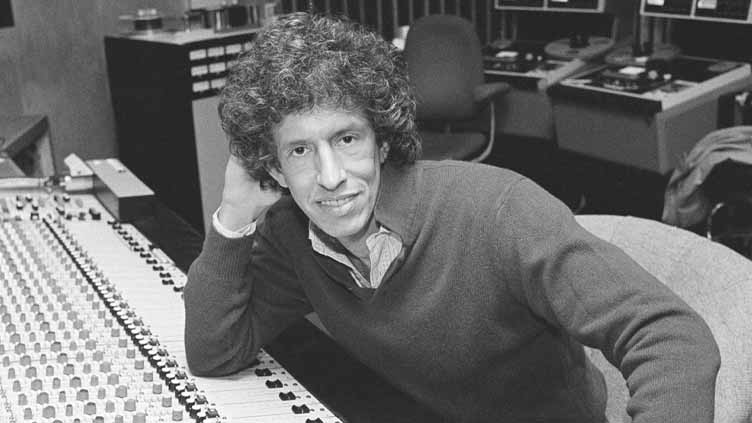Richard Perry, record producer behind 'You're So Vain' and other hits, dies at 82

Entertainment
In the ‘70s, Perry helped facilitate a near-Beatles reunion
LOS ANGELES (AP) – Richard Perry, a hitmaking record producer with a flair for both standards and contemporary sounds whose many successes included Carly Simon’s “You’re So Vain,” Rod Stewart’s “The Great American Songbook” series and a Ringo Starr album featuring all four Beatles, died Tuesday. He was 82.
Perry, a recipient of a Grammys Trustee Award in 2015, died at a Los Angeles hospital after suffering cardiac arrest, friend Daphna Kastner said.
“He maximized his time here,” said Kastner, who called him a “father friend” and said he was godfather to her son. “He was generous, fun, sweet and made the world a better place. The world is a little less sweeter without him here. But it’s a little bit sweeter in heaven.”
Perry was a onetime drummer, oboist and doo-wop singer who proved at home with a wide variety of musical styles, the rare producer to have No. 1 hits on the pop, R&B, dance and country charts. He was on hand for Harry Nilsson’s “Without You” and The Pointer Sisters’ “I’m So Excited,” Tiny Tim’s novelty smash “Tiptoe Through the Tulips” and the Willie Nelson-Julio Iglesias lounge standard “To All the Girls I’ve Loved Before.” Perry was widely known as a “musician’s producer,” treating artists like peers rather than vehicles for his own tastes. Singers turned to him whether trying to update their sound (Barbra Streisand), set back the clock (Stewart), revive their career (Fats Domino) or fulfill early promise (Leo Sayer).
“Richard had a knack for matching the right song to the right artist,” Streisand wrote in her 2023 memoir, “My Name is Barbra.”
Perry’s life was a story, in part, of famous friends and the right places. He was backstage for 1950s performances by Little Richard and Chuck Berry, sat in the third row at the 1967 Monterey Pop Festival during Otis Redding’s memorable set and attended a recording session for the Rolling Stones’ classic “Let It Bleed” album. A given week might find him dining one night with Paul and Linda McCartney, and Mick and Bianca Jagger the next. He dated Elizabeth Taylor and Jane Fonda among others and was briefly married to the actor Rebecca Broussard.
In Stewart’s autobiography, “Rod,” he would remember Perry’s home in West Hollywood as “the scene of much late-night skulduggery through the 1970s and beyond, and a place you knew you could always fall into at the end of an evening for a full-blown knees-up with drink and music and dancing.”
In the ‘70s, Perry helped facilitate a near-Beatles reunion.
He had produced a track on Starr’s first solo album, “Sentimental Journey,” and grown closer to him through Nilsson and other mutual friends. “Ringo,” released in 1973, would prove the drummer was a commercial force in his own right — with some well-placed names stopping by.
The album, featuring contributions from Nilsson, Billy Preston, Steve Cropper, Martha Reeves and all five members of The Band, reached No. 2 on Billboard and sold more than 1 million copies. Hit singles included the chart toppers “Photograph,” co-written by Starr and George Harrison, and a remake of the 1950s favorite “You’re Sixteen.”
By the end of the decade, Perry was an industry star, working on Captain Beefheart’s acclaimed cult album, “Safe As Milk” and the debut recording of Tiny Tim and Ella Fitzgerald’s “Ella,” featuring the jazz great’s interpretations of songs by the Beatles, Smokey Robinson and Randy Newman. In the early 1970s, he would oversee Streisand’s million-selling “Stoney End” album, on which the singer turned from the show tunes that made her famous and covered a range of pop and rock music, from the title track, a Laura Nyro composition, to Gordon Lightfoot’s “If You Could Read My Mind.”
“I liked Richard from the moment we met. He was tall and lanky, with a mop of dark, curly hair and a big smile, which his big heart,” Streisand wrote in her memoir. “At our first meeting, he arrived laden with songs, and we listened to them together. Whatever hesitation I may have felt about our collaboration soon vanished and I thought, ‘This could be fun, and musically liberating.’”


